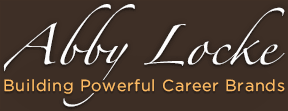
Even with the best intentions, we can be using something that is really hurting not helping us. The same mistakes can happen when it comes to your job search.
You know the feeling. You have been committed and earnest in your job search efforts.
You have followed up on every lead, made contact with referrals, reached out to decision makers on social media and even initiated a few informational interviews.
But here you are, several months later, and still no results to show for your efforts.
You cannot help, but asked yourself “What am I doing wrong:”
This may come as a surprise, but that lovely, well-written resume that you are sending out could be source of your job search woes.
Can you say with certainty that your professional resume is making that great first impression and delivering the powerful impact that you need?
Here are a few basic facts to keep in mind when it comes to your professional resume.
Your resume is a career marketing tool and should be developed with a clear target audience in mind; your professional resume should be marketed through the most effective channels to reach that audience or else your resume is simply useless.
McDonalds or Taco Bell does not advertise in food magazine geared for vegetarians or vegan food eaters, right?
No matter how elaborate or fancy the ads could be, it’s the wrong audience and the wrong channels. The same philosophy applies to your professional resume.
However, instead of spending hours and hours revising and rewriting your professional resume every time you apply for a position, take a close look at the following common mistakes and make sure you are not falling victim to them.
Drop the “resume-must-be-one-page”
 Unless you are recent college graduate or entry-level professional, you should have a two-page resume You need a resume with a succinct yet compelling summary of your career background and relevant achievements.
Unless you are recent college graduate or entry-level professional, you should have a two-page resume You need a resume with a succinct yet compelling summary of your career background and relevant achievements.
Drop the generic resume
Stop telling employers and recruiters what you want and show that what you can offer.
Avoid “me-oriented” resume content that are missing your value proposition to potential employers. instead use a strong, personal brand statement that will get you better results when it comes to targeting your dream jobs.
Drop the traditional career obituary
A rehash of your work history is not enough to make a real “noise” in today’s highly competitive job market.
Combine relevant work experience with top credentials and key qualifications to demonstrate how you are the real solution for the company’s immediate needs.
Arm yourself with a memorable, story-telling career marketing document that “sells” you as the ideal candidate.
Drop the task-oriented resume
Really get this. Your job tasks and work responsibilities only tell employers half of your career story.
Always go the extra mile and enhance your resume by including quantifiable, “wow” achievements that show employers and recruiters how well you have done your job. Remember, the impact and contributions are what make you stand out.
Drop the functional resume
Functional resume are not a favorite with employers and recruiters in any industry.
More often than not, functional resumes trigger a red flag and imply that you either have employment gaps or lack the necessary experience and skills for the job.
Use a combination format for your executive resume that best highlights your relevant experience and transferable skills while keeping the main resume content in chronological order.
Now that you know what could be hurting your job, take a close look at your professional resume and make the necessary changes.



